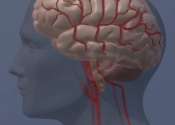Could poor sleep contribute to symptoms of schizophrenia?
Neuroscientists studying the link between poor sleep and schizophrenia have found that irregular sleep patterns and desynchronised brain activity during sleep could trigger some of the disease's symptoms. The findings, published ...
Nov 14, 2012
0
0






